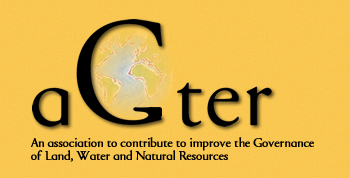|
|
||||||||||||||
|
|
The citizens’ movement raised by the Ekta Parishad network get, in october 2012, serious guarantees that the agrarian reform, whom it get the programmation in 2007, will be concretised. In 2007, 25000 Indian landless coordinated by Ekta Parishad walked to reclaim a new agrarian reform in India (see this article). The success of this march permitted to change the law about land distribution but was not enough to answer the needs of the poorest of the country (see this article). Seeing no land redistribution coming, Indian landless decided to take the road again and to ask for the concrete implementation of this redistribution and the right to shelter. In October 2011, was organised a Samwad yatra (warning march) with tens of Ekta Parishad activists but the Indian Government did not pay attention to it. In consequence, Ekta Parishad and other organisations started the Jan Satyagraha (March for Justice) : 350 km from Gwalior (Madhya Pradesh) to Delhi to defend their rights to land and other livelihood resources. Prepared over the course of four years, Jan Satyagraha was supported worldwide with many non-violent actions (marches, forum, exhibitions, etc). Intense negotiations with the government took place during the 2 weeks before the march, but the proposal of the government presented the day before the start by the Minister of Rural Development was not meeting the expectations of the marchers and the leadership of Jan Satyagraha. Then, they decided the march was necessary to keep the pressure on the government. The 3rd of Octobre 2012, 35000 people (adivasis, autichtones, dalits, etc.) left Gwalior in order to give a voice to the poorest communities of India that are asking the right to live in dignity. The main demands of this non-violent action, inspired by Gandhi, were a new land reform policy which would guarantee access to land and livelihood resources, and a law establishing the right to shelter. After crossing a corner of Rajasthan, the thousands of Jan Satyagraha marchers passed the border of Uttar Pradesh, on 9th of October. The national government meanwhile, seeking to continue negotiations on an agreement with Jan Satyagraha organisers, had invited P.V. Rajagopal (leader of the movement) to come to Delhi to further discuss possibilities to reach an accord. A delegation was sent to Delhi to meet the Minister of Rural Development, Mr. Jairam Ramesh, and other government officials to discuss a new 10 points proposal by the government. The proposal being discussed was to establish a road map for a contemporary land reform policy that addresses the very existential needs of the twenty percent of the Indian population living in great poverty. At the center were institutions and legal provisions that can deliver land for shelter and agriculture to those most in need. On 10th of October, the Jan Satyagraha reached the city of Agra (Taj Mahal city, Uttar Pradesh) with some public declarations from local authorities and activists to support the march. The following day, after 9 days marching, participants have been invited to a meeting with the Rural Development Minister instead of walking. A member of the negotiation team read the agreement reached between Jan Satyagraha and the Indian government with ten policy points making up the road map toward a major land reform in favour of poor and landless rural people. Copies of the agreements were handed out to all the marchers. Some of the key points of the agreement were :
The agreement also mentions mechanisms and recommendations to ensure implementation of these new policies. Moreover, as the allocation of land is a State prerogative, the involvement of State governments was key to carrying out land distribution. The march has been stopped half way and participants have been celebrating this historical victory, however, they declared that if the milestones of the road map would not be achieved within six months, the government could be sure to expect 100’000 marchers to complete the Jan Satyagraha leg from Agra to Delhi. To follow this tight agenda, Ekta Parishad and other organisations started quickly to implement with the Indian government the Task force in charge of the implementation of the reforms. Source : Press release from Marie Bohner (coordination of the Ekta Parishad’s communication in Europe), update by Ramesh Sharma (Ekta Parishad) AGREEMENT ON LAND REFORMS BETWEEN THE MINISTRY OF RURAL DEVELOPMENT (GOI) More informations |
AGTER. Addres: 45 bis, avenue de la Belle Gabrielle, 94736 NOGENT SUR MARNE CEDEX, FRANCE
Telephone: +33(0)1 43 94 72 59 / +33(0)1 43 94 72 96
E-mail: agter@agter.org





